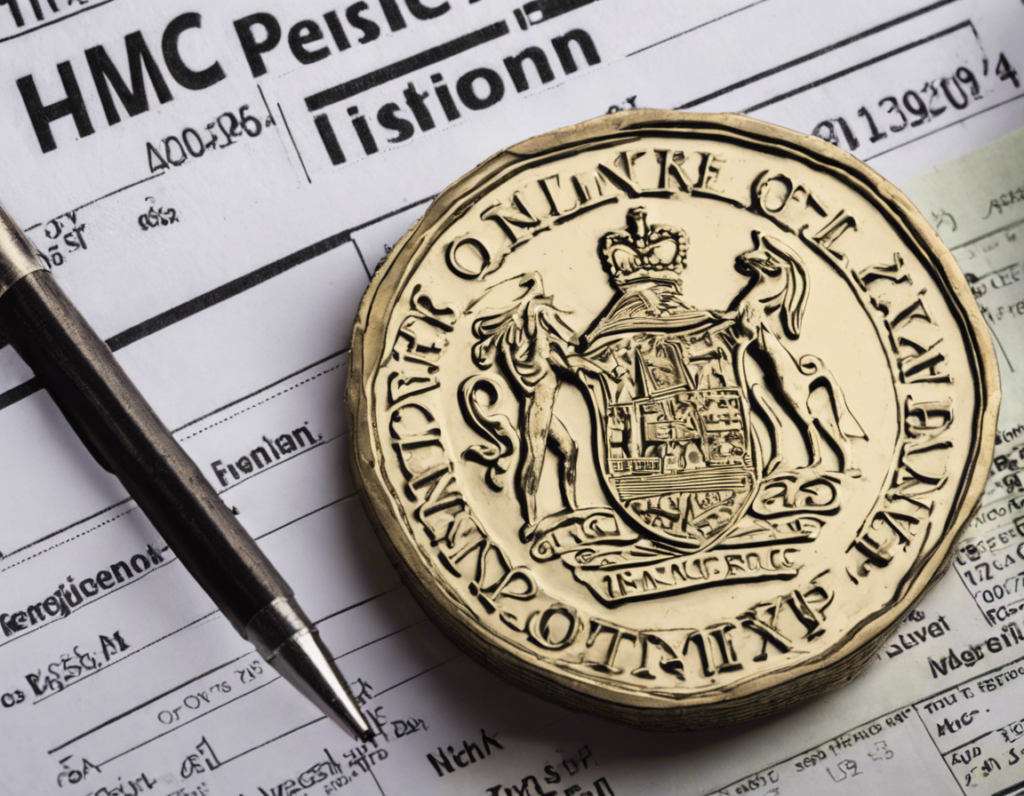In a landmark development, the UK’s tax authority, HM Revenue and Customs (HMRC), recently announced that it is returning a staggering £42 million to individuals who were overcharged on their pension tax payments. This move comes in the wake of widespread concerns over the complex and often confusing pension tax rules that have resulted in significant financial burdens for many taxpayers.
Understanding Pension Tax Overpayments
Pension tax overpayments typically occur when individuals exceed their annual pension contribution limit or fail to correctly report their income to HMRC. The complex nature of pension tax regulations, particularly for high earners, has led to inadvertent overpayments by taxpayers who may not be fully aware of their obligations or entitlements.
For instance, individuals earning over a certain threshold are subject to annual allowance restrictions on their pension contributions, leading to potential tax charges if these limits are exceeded. Moreover, changes in employment circumstances or varying sources of income can further complicate the calculation of pension tax liabilities, often resulting in overpayments by taxpayers.
HMRC’s Rectification Efforts
Recognizing the gravity of the situation, HMRC has taken proactive measures to address the issue of pension tax overpayments and ensure that affected individuals are duly compensated. The £42 million return marks a significant step towards rectifying past errors and easing the financial burden on taxpayers who have inadvertently paid more than their fair share of pension tax.
HMRC has also committed to improving its guidance and support for taxpayers navigating the complex landscape of pension tax rules. By enhancing awareness and clarifying key regulations, the tax authority aims to prevent future instances of overpayment and facilitate a smoother tax compliance process for all individuals.
Impact on Taxpayers
The news of HMRC’s £42 million repayment will undoubtedly come as a relief to many taxpayers who have been grappling with the repercussions of pension tax overpayments. For those affected, the return of excess tax funds represents not only a financial reprieve but also a validation of their rights as taxpayers.
Moreover, the transparency and accountability demonstrated by HMRC in acknowledging and rectifying these overpayments reflect a commitment to fairness and equity in the tax system. By addressing discrepancies and offering redress to affected individuals, HMRC is setting a positive precedent for upholding taxpayer rights and fostering trust in the UK’s tax administration.
Key Takeaways for Taxpayers
- Stay Informed: Keep abreast of updates and changes in pension tax regulations to ensure compliance and avoid overpayments.
- Seek Guidance: Consult with financial advisors or tax professionals for personalized advice on managing pension contributions and tax liabilities.
- Review Statements: Regularly review your pension contributions and tax statements to identify any discrepancies or errors that may require correction.
- Claim Refunds: If you suspect that you have been overcharged on pension tax, promptly contact HMRC or seek assistance in reclaiming any excess payments.
FAQs on Pension Tax Overpayments
1. How can I determine if I have overpaid pension tax?
– Review your pension contribution statements and tax documents to check for any discrepancies or excess payments. You can also use online calculators or seek advice from tax professionals.
2. What should I do if I believe I have overpaid pension tax?
– Contact HMRC directly to discuss your concerns and request a review of your tax payments. Provide any necessary documentation to support your claim for a refund.
3. Will HMRC automatically refund overpaid pension tax?
– While HMRC may identify and rectify certain overpayments, it is advisable to proactively review your tax records and initiate a refund claim if you believe you have been overcharged.
4. Are there time limits for claiming refunds on pension tax overpayments?
– HMRC typically allows individuals to claim refunds for overpaid tax within a specific timeframe, so it is important to address any concerns promptly to avoid potential limitations on reclaiming excess payments.
5. Can I prevent pension tax overpayments in the future?
– By staying informed about pension tax regulations, seeking professional advice, and monitoring your contributions closely, you can minimize the risk of overpaying tax on your pension and ensure compliance with the relevant rules.
As the HMRC’s initiative to return £42 million for overpaid pension tax signifies a positive step towards rectifying past errors and alleviating financial burdens for taxpayers, it also underscores the importance of vigilance and compliance in managing pension contributions and tax liabilities. By staying informed, seeking assistance when needed, and asserting your rights as a taxpayer, you can navigate the complexities of pension tax regulations with confidence and peace of mind.
